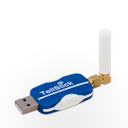
Install Tellstick Debian
I Recently got interested in home automation, and set up OpenHab, first on a PC, then On a Raspberry Pi.
Depending on your system and connection, downloading and installing Xfce packages will take some time. Installing Xrdp # Xrdp package is available in the standard Debian repositories. To install it, run: sudo apt install xrdp. The service will automatically start once the installation process is complete. To install the node-telldus package, run these commands: sudo npm install node-gyp mkdir node-telldus cd node-telldus sudo npm install node-telldus. You may have to change the user and group in /etc/tellstick.conf to root to get Tellstick data into your Node application.
It all worked well, after a fairly steep learning curve, my Harmony hub and Tradfri Lights were easy to set up.
I was particularly impressed by the easy installation and configuration of OpenHab compared to other systems I have tried.
Then I remembered that I have a couple of Orange Pi Ones left over from my eBay trading period, so decided to try it on one of those, as I have other uses for my RPi.
The Orange pi One has a 4 core ARM processor and 512Mb of memory.
I also have an Orange pi lite, which has built in wifi, so that will be the next experiment.
First I downloaded Armbian from:
I chose this image:
Armbian_5.35_Orangepione_Ubuntu_xenial_default_3.4.113.7z
One piece: stampede download. Unzipped it, and copied it onto an SDcard using Etcher from Resin.io
Booted up and configured Armbian.
The default user is root with a password of 1234 which you are asked to change after installation is completed.
Then I logged in via SSH. (I use Linux on all my PCs, so command line from here only I’m afraid ).
ssh <user@ipaddressof orangepi>
First update:
sudo apt update
sudo apt upgrade
a while later….
sudo reboot
Install Java (OpenHab runs on Java)
sudo add–apt–repository ppa:webupd8team/java
sudo apt update
sudo apt install oracle-java8-installer
sudo reboot
Install OpenHab following the instructions here for Debian:
15 minutes later, I had OpenHab running on OPi1 IPaddress:8080
I installed some bindings, and everything started appearing in my inbox.
Next step was to install and configure my Tellstick USB stick.
The Tellstick is a USB 433MHz transmitter for controlling a variety of proprietary power sockets.
I have one of the original Tellstick units, (The newer Tellstick duo is a transceiver version) and several EasyHome 433MHz sockets.
To install the Tellstick on Armbian: (updated as the original commands are outdated)
sudo sh -c ‘echo “deb http://s3.eu-central-1.amazonaws.com/download.telldus.com unstable main’
sudo wget http://download.telldus.se/debian/telldus-public.key
sudo apt-key add telldus-public.key
sudo apt update
sudo apt install -y telldus-core libftdi1 libconfuse-dev
The following steps may not be necessary, if the service is enabled by the installer.
Start the service:
sudo systemctl start telldusd.service
Check it is running:
sudo systemctl status telldusd.service
should show something like this:
● telldusd.service – Tellstick service daemon
Loaded: loaded (/lib/systemd/system/telldusd.service; enabled; vendor preset: enabled)
Active: active (running) since Sun 2017-12-24 10:19:33 UTC; 1h 24min ago
Process: 2190 ExecStart=/usr/local/sbin/telldusd (code=exited, status=0/SUCCESS)
Main PID: 2191 (telldusd)
CGroup: /system.slice/telldusd.service
└─2191 /usr/local/sbin/telldusd
Dec 24 10:19:33 orangepione systemd[1]: Starting Tellstick service daemon…
Dec 24 10:19:33 orangepione telldusd[2191]: telldusd daemon starting up
Dec 24 10:19:33 orangepione systemd[1]: Started Tellstick service daemon.
Dec 24 10:19:34 orangepione telldusd[2191]: Connecting to TellStick (1781/C30) with serial A6008hvI
then
sudo systemctl enable telldusd.service
Will set it up to start at boot time.
it should show this:
Synchronizing state of telldusd.service with SysV init with /lib/systemd/systemd-sysv-install…
Executing /lib/systemd/systemd-sysv-install enable telldusd
That’s it!
You can now configure your devices by editing /etc/tellstick.conf
sudo nano /etc/tellstick.conf
Add the Tellstick binding and the Tellstick and its devices should start appearing i n your in-tray.
Operator's Instruction Manual.M-2JCB 520M-2 Telescopic handler. Operator's Instruction Manual.M-4JCB 520M-4 Telescopic handler. Service (workshop) Manual. Jcb 512 operator manual. Spare Parts Catalog.
Links for owfs
Debian Resources:
Download Source Package owfs:
Maintainer:
- Vincent Danjean (QA Page)
External Resources:
- Homepage [owfs.org]
Similar packages:
Dallas 1-wire support
The 1-Wire bus is a cheap low-speed bus for devices like weathersensors, access control, etc. It can be attached to your system viaserial, USB, I2C, and other interfaces.

This package is a metapackage depending on various other OWFS packages.Installing this package gets you a FUSE daemon, server arbitrates accessto the bus from multiple client processes, small ftp and webserver.
Other Packages Related to owfs
|
|
|
|
- dep:owfs-fuse (>= 3.2p3+dfsg1-2)
- 1-Wire filesystem
- dep:owftpd (>= 3.2p3+dfsg1-2)
- FTP daemon providing access to 1-Wire networks
- dep:owhttpd (>= 3.2p3+dfsg1-2)
- HTTP daemon providing access to 1-Wire networks
- dep:owserver (>= 3.2p3+dfsg1-2)
- Backend server for 1-Wire control
- sug:owfs-doc
- Dallas 1-wire support: Documentation for owfs
Download owfs
| Architecture | Package Size | Installed Size | Files |
|---|---|---|---|
| all | 9.0 kB | 25.0 kB | [list of files] |